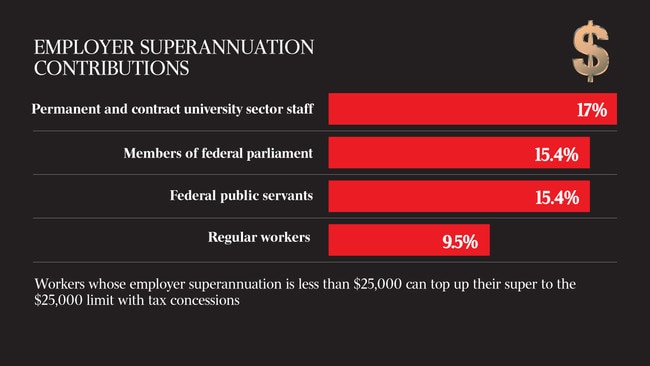University staff win extension of 17 per cent super scheme
The university union has successfully negotiated an extension of the generous 17 per cent super scheme.

The university union has successfully negotiated an extension of the 17 per cent employer superannuation contributions enjoyed by tenured staff to fixed-term contract staff in all enterprise agreements struck so far.
About half the enterprise bargains in the sector have been concluded in the current round, and although the union won the superannuation contribution battle for fixed-term contract staff (regardless of the contract length), it failed to get the deal for casual staff.
Jeannie Rea, president of the National Tertiary Education Union, said the increased use of fixed-term contracts in the sector was a great concern.
“We’ve become very aware of it among researchers,” Ms Rea said. “What we’re finding is people are employed on shorter and shorter term contracts, which have all the disadvantages of contract employment, and one of them, of course, is accumulating superannuation.
“So one of the things we’ve pushed for in this current round, and have succeeded so far, is extending that 17 per cent super to people on limited-term contracts. The exact provisions vary a little.”
The employer contribution is 17 per cent on top of base salary and is higher than the 9.5 per cent received by most other workers.
Tony Shepherd, chairman of the Abbott government’s landmark cost-cutting taskforce, sparked a debate about superannuation when he told The Weekend Australian it was “probably an oversight, to be blunt” that his 2013 Commission of Audit, which recommended drastic cuts to welfare, didn’t examine the 15.4 per cent super contributions enjoyed by the nation’s federal public sector workforce and politicians.
Ms Rea said collective bargaining had helped workers in various fields, including at universities, to get more than minimum employer superannuation contributions.
Dubbing the universities’ attitude towards superannuation contributions for casual staff “parsimonious” because casual staff earned comparatively little, she said the union’s main focus had been on the issue of insecure employment, and pushing for a better “conversion” structure, so that workers who worked on a number of contracts became legally eligible for permanent employment.
Negotiations are contining on unresolved issues.
“There have been gains on both sides,” said Andrew Dempster, a management consultant for the higher education sector.
“The NTEU has been successful at extending universities’ generous superannuation arrangements even further. That’s a major achievement and one which would be the envy of other industries.
“In return, some universities have secured changes to working conditions which will allow them to run more efficiently and with less bureaucracy.”
Peter Raymond, a workplace relations consultant with the Australian Higher Education Industrial Association, said the union did not win on all fronts.
“Unions got a nasty surprise in Western Australia when West Australian universities co-ordinated their bargaining for the first time, and they (the union) didn’t get as good a run at as they had hoped,” he said.


